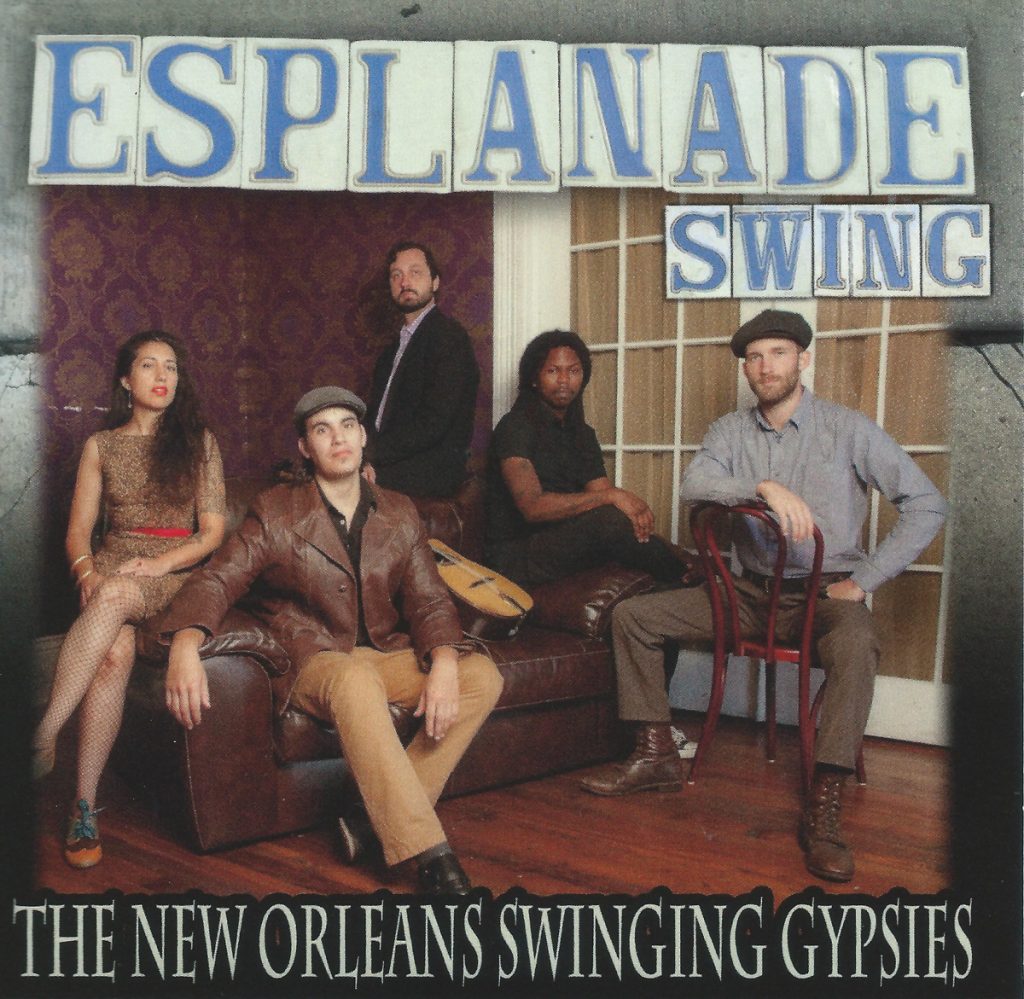 The eight-fingered solos of Django Reinhardt loom large over all gypsy jazz, and that goes double for this debut album, mostly instrumental and strung with at least half a dozen of the guitar master’s finest works, not so much reimagined as reinvigorated by a group of young locals also infatuated with New Orleans Dixieland. This mixture of trad and hot jazz doesn’t result in a stylistic advance; the many Django numbers are a little bit swingier to be sure, and one of the only originals on the album, the leadoff title track, is practically giddy with its heady mix of guitar, violin and sax runs, trading off as frantically as cars changing lanes on the Causeway. Mainly this is gypsy jazz with a couple of covers, but the group’s main contribution is the addition of a tap dancer—that’s right—who actually serves the group quite well as a percussionist.
The eight-fingered solos of Django Reinhardt loom large over all gypsy jazz, and that goes double for this debut album, mostly instrumental and strung with at least half a dozen of the guitar master’s finest works, not so much reimagined as reinvigorated by a group of young locals also infatuated with New Orleans Dixieland. This mixture of trad and hot jazz doesn’t result in a stylistic advance; the many Django numbers are a little bit swingier to be sure, and one of the only originals on the album, the leadoff title track, is practically giddy with its heady mix of guitar, violin and sax runs, trading off as frantically as cars changing lanes on the Causeway. Mainly this is gypsy jazz with a couple of covers, but the group’s main contribution is the addition of a tap dancer—that’s right—who actually serves the group quite well as a percussionist.
If you want to hear some clean fresh recordings of some of Reinhardt’s best works with a slightly New Orleans flair, this sextet is for you. Like a punk band ripping into pop chestnuts, they’re faster, brighter, sprightlier and livelier than the originals, which is saying something when it comes to Django. But next to obvious classics like “Swing 42” or lesser known pieces like “Lulu Swing” are surprises—Satchmo’s “Mahogany Hall Stomp,” Kenny Ball’s “Midnight in Moscow,” the Gershwins’ “Lady Be Good.” These gypsies drag trad-jazz back to their camp rather than drag Django into the side streets of the Quarter, but gypsy has become such an integral part of our new hipster Bohemia that a well-timed history lesson couldn’t hurt.



